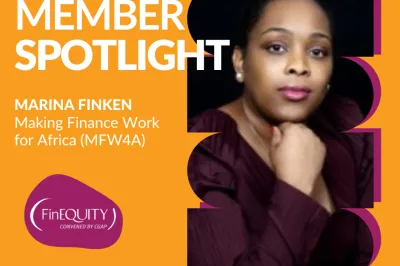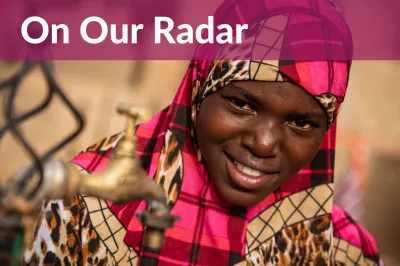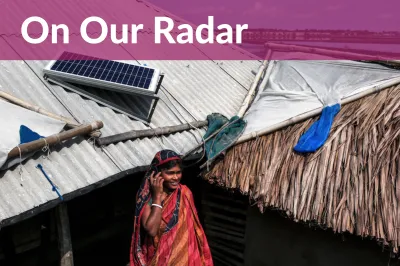Introducing Rose Ronoh
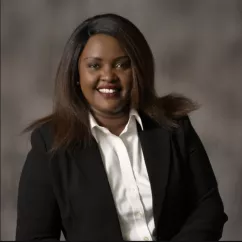
Rose is a trade economist with over twenty years of work experience drawn from public, private and development sectors in Africa. Rose has been involved in negotiation, design and implementation of trade and gender equality initiatives supporting development partners such as UNECA, CBI Netherlands, GIZ, Expertise France, and USAID amongst many other
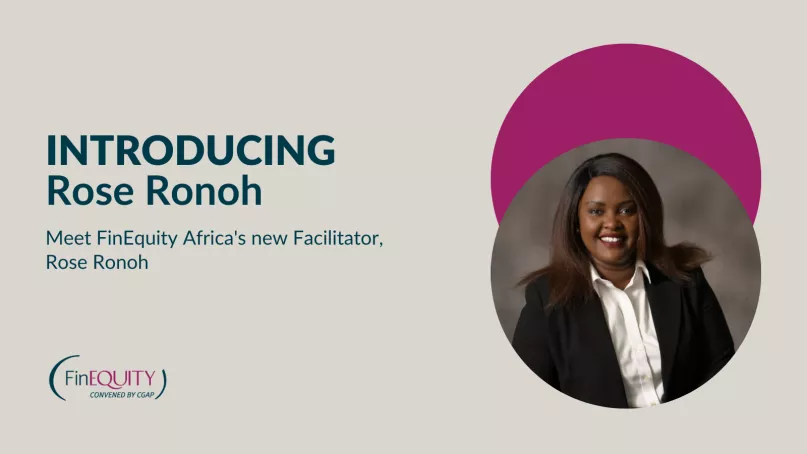
FinEquity: Tell us a little bit about yourself. A fun fact? Something that might surprise most people. Your superpower?
Rose Ronoh: I am Rose Ronoh, a gender and trade economist based in Nairobi, Kenya. I am passionate about women's economic empowerment and I believe financial inclusion is one of the key tenets of achieving SDG 5 Gender Equality. My education background was in International Business Administration with a concentration in Marketing and Communication and I worked with the private sector in Kenya in that capacity for 10 years.
After moving to work in the public sector in Kenya as a trade facilitation professional, I encountered firsthand the challenges that women face in Africa that predispose them to poverty, gender-based violence, and cultural biases. With this realization, I decided to start a consultancy firm in June of 2020 amidst the COVID-19 pandemic to assist women-owned enterprises by supporting them to take advantage of the economic opportunities in their environment. TradeSmart Consult Ltd has grown very fast with the support of partners such as CBI Netherlands, FinEquity, TradeMark East Africa, and CIPE amongst many others, and this makes me very proud. I am delighted to join FinEquity through my firm TradeSmart Consult Ltd to facilitate learning and knowledge dissemination in financial inclusion.
What may surprise many people is I grew up in a rural setting in Africa under circumstances where women and girls didn’t have many rights, including the right to speak and to be heard. However, my parents were very progressive, and slowly I gained my voice as a girl and eventually a woman. There are still many other voiceless women in Africa that need someone to speak for them and I am happy to advocate for gender equality in Africa.
FinEquity: What originally drew you to the women’s financial inclusion (WFI) and economic empowerment (WEE) sector? What has kept you here?
Rose: The firsthand experience of the challenges that African women have to go through with most of them bearing the brunt of poverty, war, and disease in their countries is what drew me to financial inclusion and women's economic empowerment. I realized that negative cultural norms that degrade women such as female genital mutilation, early marriages, early pregnancies, widow inheritance, lack of rights to own, and lack of rights to education will continue to be propagated if the financial situation of women in Africa is not improved. I also witnessed women who were educated, held jobs and were economically empowered were less affected by the above challenges. This is what attracted me to FinEquity since I noticed that the key to resolving most of the challenges faced by women in Africa is financial inclusion. I do hope that in my new role as the Africa Regional Facilitator, I will make a difference by facilitating learning, discussions, and events and build a community that will positively impact financial inclusion for women in Africa.

FinEquity: Any current projects you’re working on that you’re finding particularly exciting/engaging?
Rose: I am only a few weeks old at FinEquity and am being onboarded and reading a lot about the work that FinEquity has been doing in the past. I have wonderful guides on the team who have graciously made my onboarding much easier by according me their time to help me understand FinEquity. I am currently developing a work plan for Africa and what excites me the most are the five learning events we have planned to have and the official launch of FinEquity Africa. I am particularly excited about creating awareness of FinEquity in Africa and creating a community that will foster positive policy change in financial inclusion through learning. I am also excited to engage with our critical knowledge partners Financial Sector Deepening (FSD) and Graca Machel Trust who have made huge strides in this area.
FinEquity: Do you have a success story from your past work in Africa that you’d like to share? (An occasion where you felt that you or your organization were making a real impact in the lives of women?)
Rose: One of my most exciting and successful experiences in my previous engagements at UNECA was the gender mainstreaming of national African Continental Free Trade Area (AfCFTA) implementation strategies of over 20 African countries. The mainstreaming ensured that policies and strategies are not gender-blind but recognize how trade differently affects men and women. One of my greatest achievements in this work was ensuring that these countries entrenched gender-responsive budgeting in their processes in order to ensure that engendered policies are not only good on paper but are also supported with sufficient financial resources. Additionally, the entrenchment of collection of gender-disaggregated data and training of government officials on gender mainstreaming is something I am very proud of.
FinEquity: What are your top priorities in 2023 (and beyond) for your work?
Rose: My top priority in 2023 is to launch FinEquity Africa through learning events, workshops, the creation of a community and putting in place a technical working group that will chart the future of FinEquity in Africa. I also intend to work with the team to develop an organic strategy for FinEquity Africa that will guarantee growth, relevance and influence in Africa in the areas of financial inclusion.
FinEquity: What can our members connect with you about/what can they ask you about?
Rose: FinEquity members are welcome to reach out to me with ideas, suggestions, and lessons learned on how we can formidably launch and make an impact in Africa. I would also like to request members to suggest or recommend organizations or individuals that they may think would benefit from the FinEquity Africa Community that we are now building. I can be reached at r.ronoh@tradesmartconsult.co.ke. I’m also open to collaboration, particularly in mainstreaming gender peer review, experiential learning forums, research designs, co-writing insights, and participating in forums/events.
